Coffee's acidity is a defining characteristic that influences both its flavor profile, but it has been also claimed to potentially affect other aspects of the drinking experience. Understanding the pH levels, acid content, and antioxidant properties across different coffee varieties, processing methods, and brewing techniques can help consumers make informed choices, especially those concerned about conditions like gastroesophageal reflux disease (GERD).
Summary: While coffee naturally contains some beneficial organic acids, much of the “acid-related” side effects of coffee consumption may not be directly related to the pH of the coffee itself, but rather, to the caffeine content.
Average pH and Acid Content in Coffee
The pH of coffee typically ranges from 4.85 to 5.10, classifying it as mildly acidic. This acidity is primarily due to organic acids such as chlorogenic acids (CGAs), citric, malic, and quinic acids. CGAs, in particular, are abundant antioxidants in coffee.
While the title “acid” might sound treacherous, some of these acids (such as chlorogenic acid) contribute to the notorious health benefits surrounding regular coffee consumption.
Factors Influencing Coffee's Acidity
-
Bean Variety:
-
Arabica Beans: Known for higher acidity and complex flavor profiles.
-
Robusta Beans: Tend to be less acidic with a stronger, more bitter taste.
-
Processing Methods:
-
Wet (Washed) Processing: Often results in brighter acidity and cleaner flavors.
-
Dry (Natural) Processing: Can lead to reduced acidity with fruitier notes.
-
Roasting Levels:
-
Light Roast: Preserves most of the bean's inherent acidity and CGAs.
-
Dark Roast: Reduces acidity due to the breakdown of some acidic compounds during roasting.
-
Grind Size:
-
Finer grinds generally result in significantly increased TDS and other extracted compounds, which can include organic acids.
-
Brewing Methods:
-
Cold Brew: Typically yields a coffee with lower acidity and a higher pH compared to hot brewing methods.
-
Espresso: Can have higher acidity due to the rapid extraction process.
Coffee's Acidity Compared to Other Beverages
To put coffee's acidity into perspective, here's a comparison with other common beverages:
|
Beverage |
Approximate pH |
|
Lemon Juice |
2.0 |
|
Orange Juice |
3.3 |
|
Soda |
2.5 – 3.5 |
|
Coffee |
4.85 – 5.10 |
|
Beer |
4.0 – 5.0 |
|
Milk |
6.5 |
|
Water |
7.0 |
And it’s not just sodas and juices that have acidic pHs. Other carbonated drinks such as sparkling waters can have them too. A study by the American Dental Association and another by CBC measured the pH of popular sparkling waters listed below. Not only does carbonation affect acidity. Flavors in drinks can dramatically increase the acid content. Fruit/citrus-flavored variations can be up to 100 times more acidic than unflavored versions.
|
Beverage |
Measured pH |
|
Bubly (Cherry, Grapefruit, Lime, Pineapple) |
3.86-4.06 |
| LaCroix (Pure, Lime, Berry, Pamplemousse, Lemon) | 4.71-4.83 |
| San Pellegrino | 4.96 |
| Perrier (Regular, Lemon, Strawberry, Grapefruit) | 5.25-5.47 |
How does drink acidity impact GERD and Acid Reflux?
The relationship between coffee consumption and GERD or acid reflux is complex:
-
Coffee itself may not be the culprit: A comprehensive meta-analysis encompassing 15 case-control studies found no significant association between coffee intake and GERD incidence.
-
Caffeine's Role: Coffee contains several bioactive compounds that influence physiological processes, notably caffeine. While not lowering pH directly, caffeine may induce gastric acid secretion through bitter taste receptors. Additionally, it can also relax the lower esophageal sphincter, potentially leading to acid reflux.
-
Other Cohort Studies: In contrast, a study involving 48,308 women from the Nurses' Health Study II indicated that consumption of coffee, tea, or soda was linked to a modestly increased risk of GER symptoms. Notably, substituting these beverages with water led to a slight reduction in GER symptoms.
How to Mitigate Coffee's Stomach Effects
So what does this mean for our stomachs? Coffee's acidity is influenced by various factors, including bean variety, processing, roasting, brewing methods and caffeine content. Given that our stomach pH is around 1.5-3.5, there are many parts of our diet that contribute to stomach pH balance. Coffee’s pH on its own, while slightly acidic, may not directly contribute to the acidic side-effects observed by many coffee drinkers.
For those historically sensitive to coffee or prone to acid reflux:
-
Monitor Consumption: Limiting intake and avoiding coffee on an empty stomach can help reduce potential discomfort.
-
Try Darker Roasts: Darker roasts generally have reduced acidity due to the breakdown of acidic compounds during roasting
-
Select Brewing Methods: Cold brew coffee is generally less acidic and may be gentler on the stomach.
-
Consider Decaffeinated Options: Reducing caffeine intake may alleviate reflux symptoms. Coffees like Rarebird’s Px Coffee replace caffeine with Px, an ingredient naturally made by our bodies from caffeine, giving it the same energy boost while having the ability to be gentler on the stomach.
"I work in the financial services industry and have depended on coffee / caffeine since 2015 to keep me at 100%. I've tried natural sources of caffeine, tea, energy drinks that promise to be healthy, just water, and even though Coffee has it's draw backs, I;ve always come back for over a decade. Not anymore. My office just started offering this in the break room. I typically plan my day around caffeine because to avoid experiencing negative side effects (stomach pain, headache, crash), but I wanted to stress test RareBird and drank 6 cups (2x my daily intake) and all I felt was energy. The efficiency gains from not having to take a walk to clear my head, go to the bathroom, etc. have converted me into a RB fan. Plus I still get to taste my coffee... Got my cake and eating it too, 10/10 would recommend." - Jeremy J.



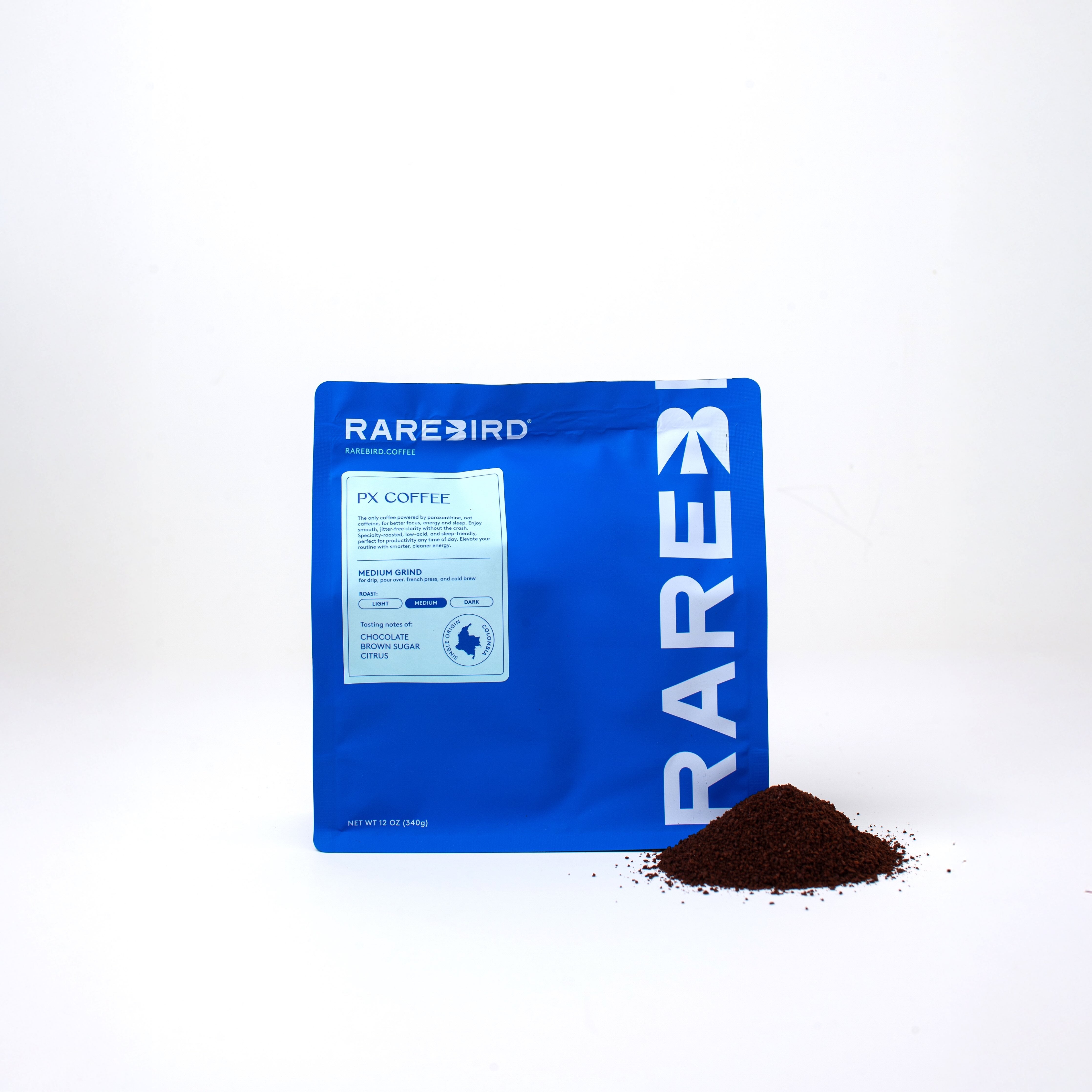
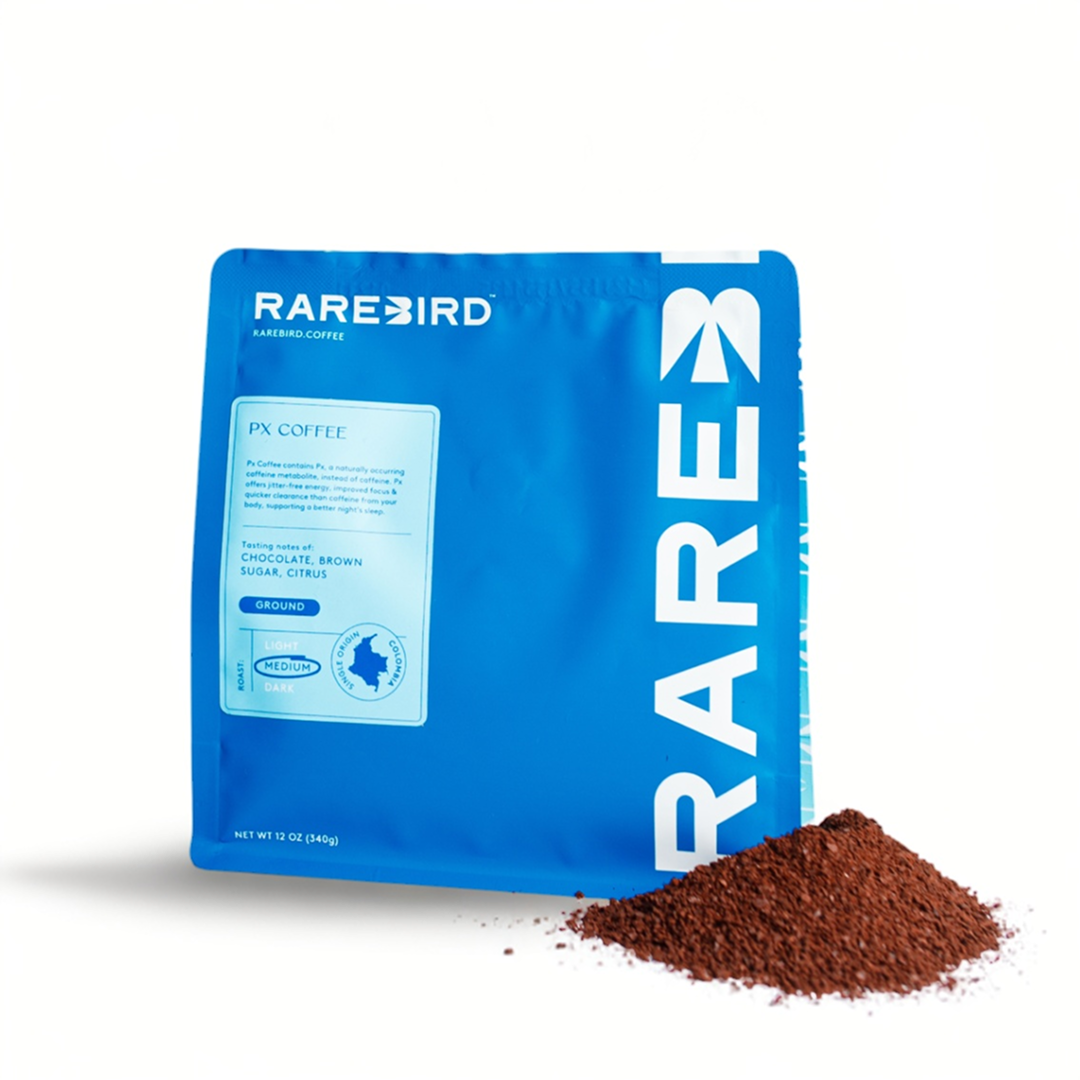
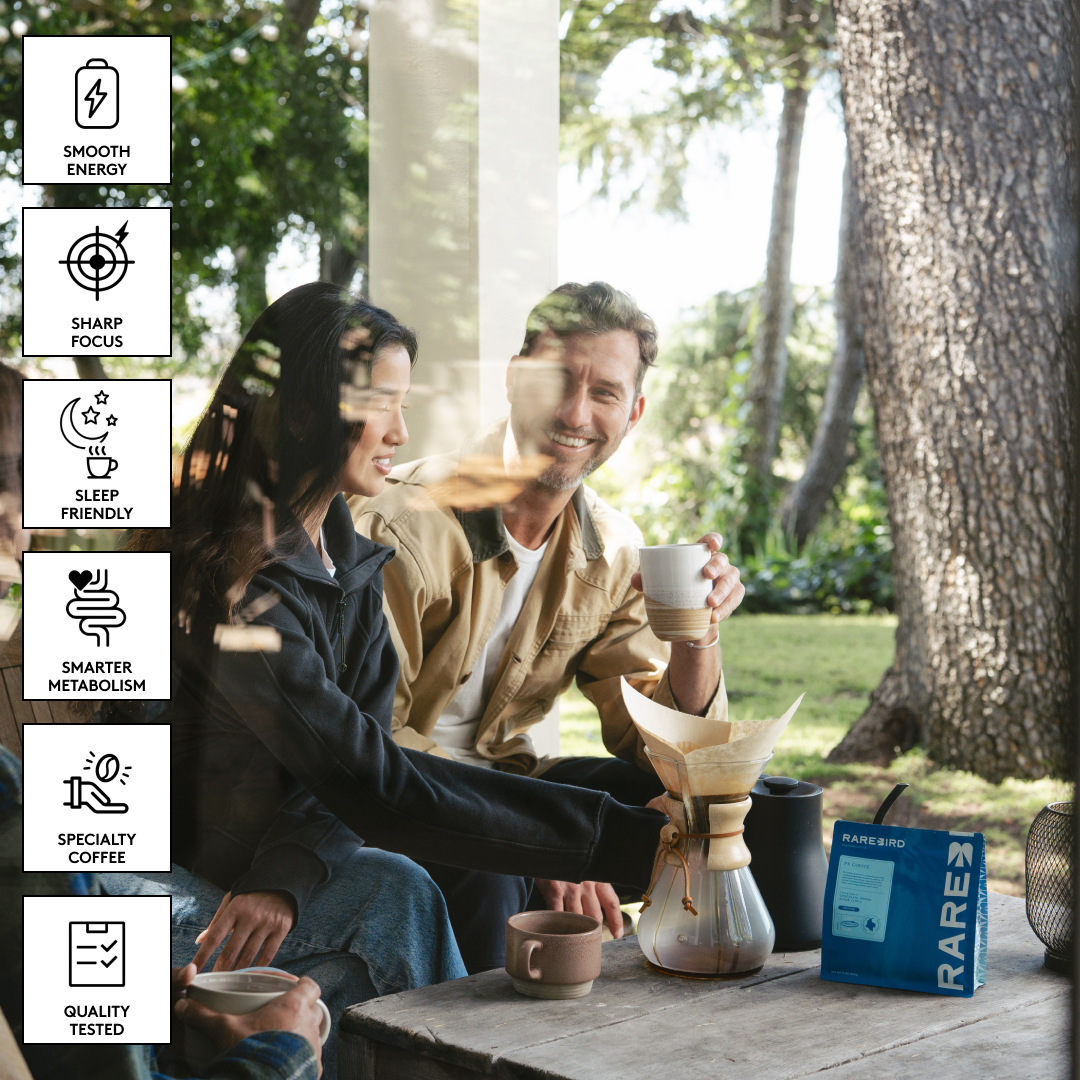
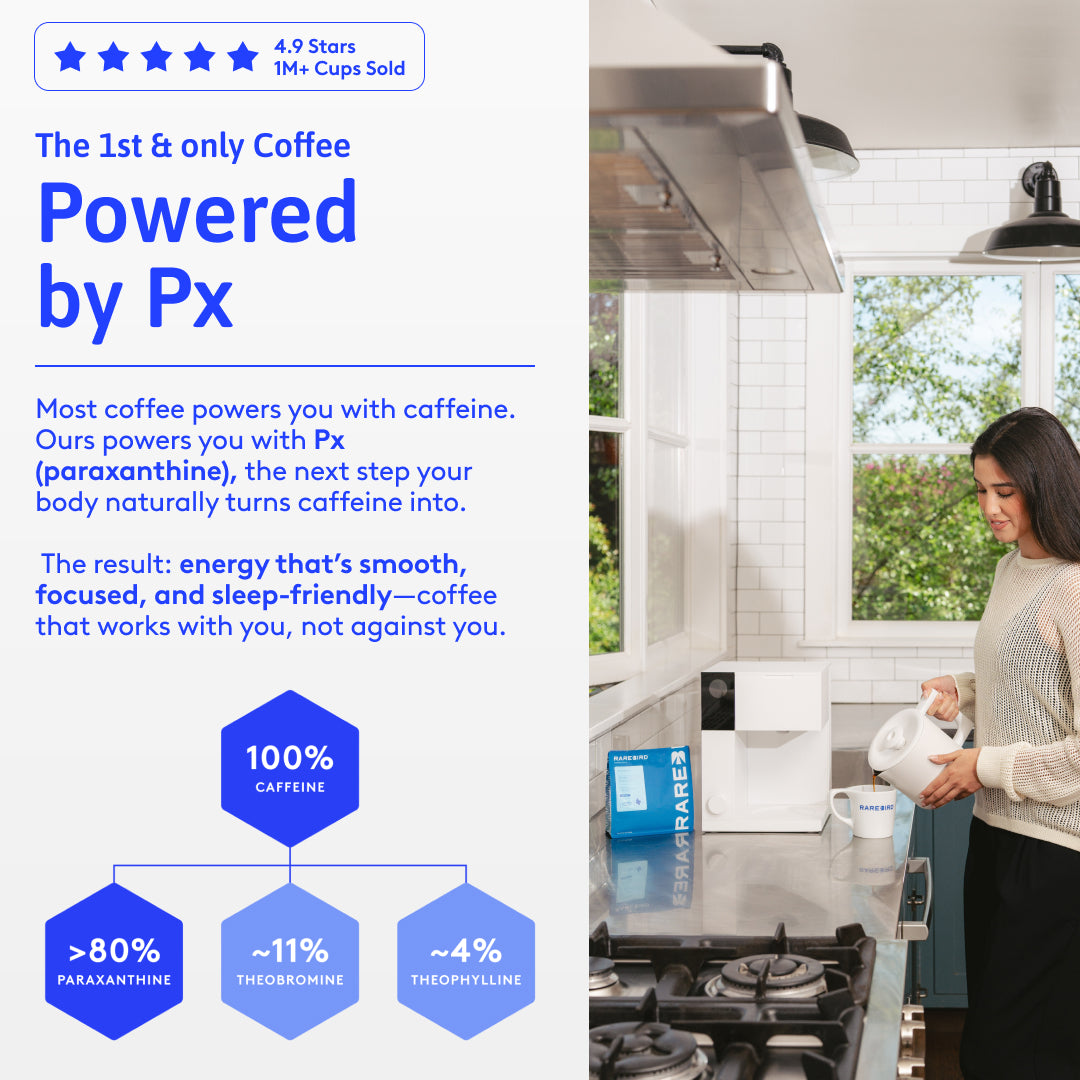
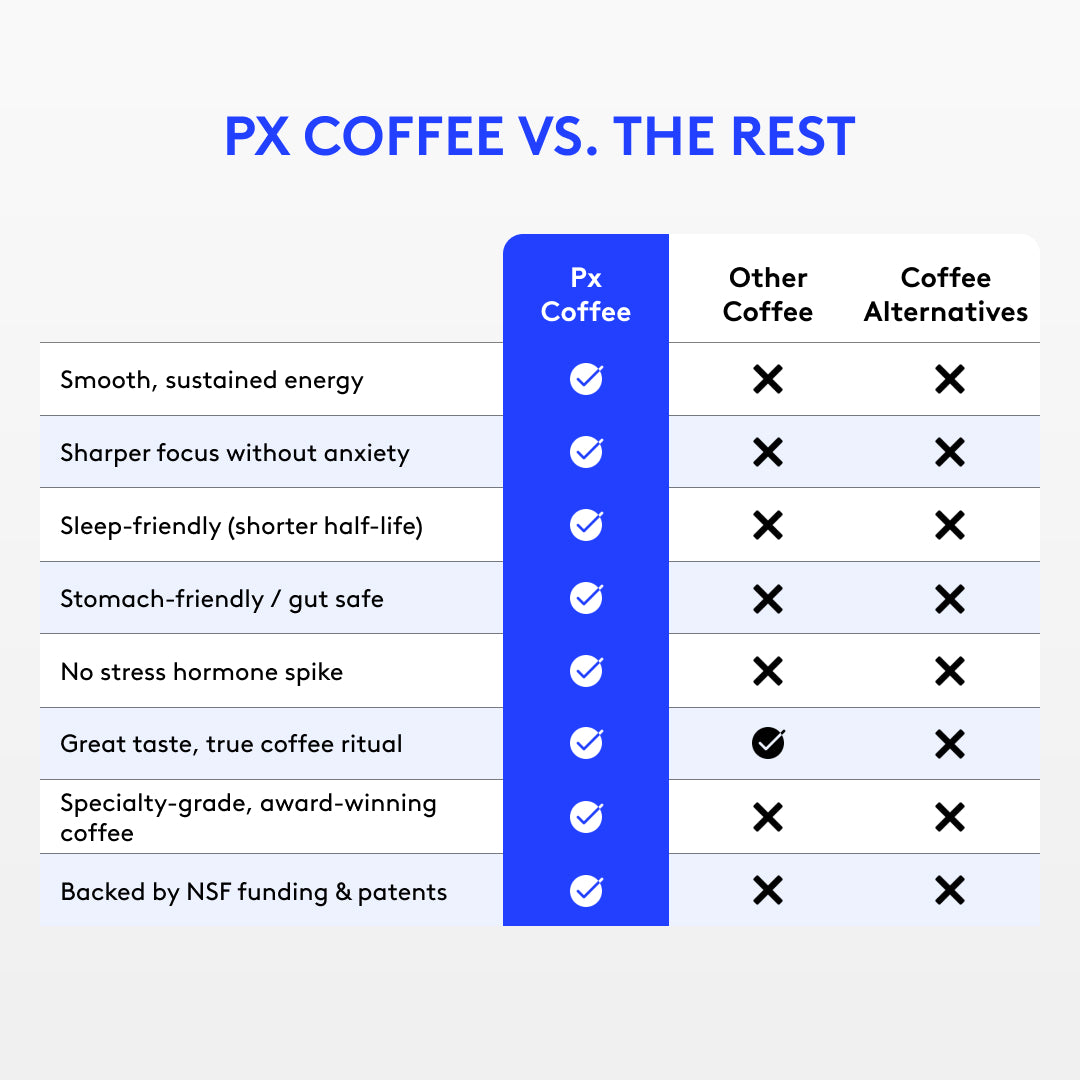



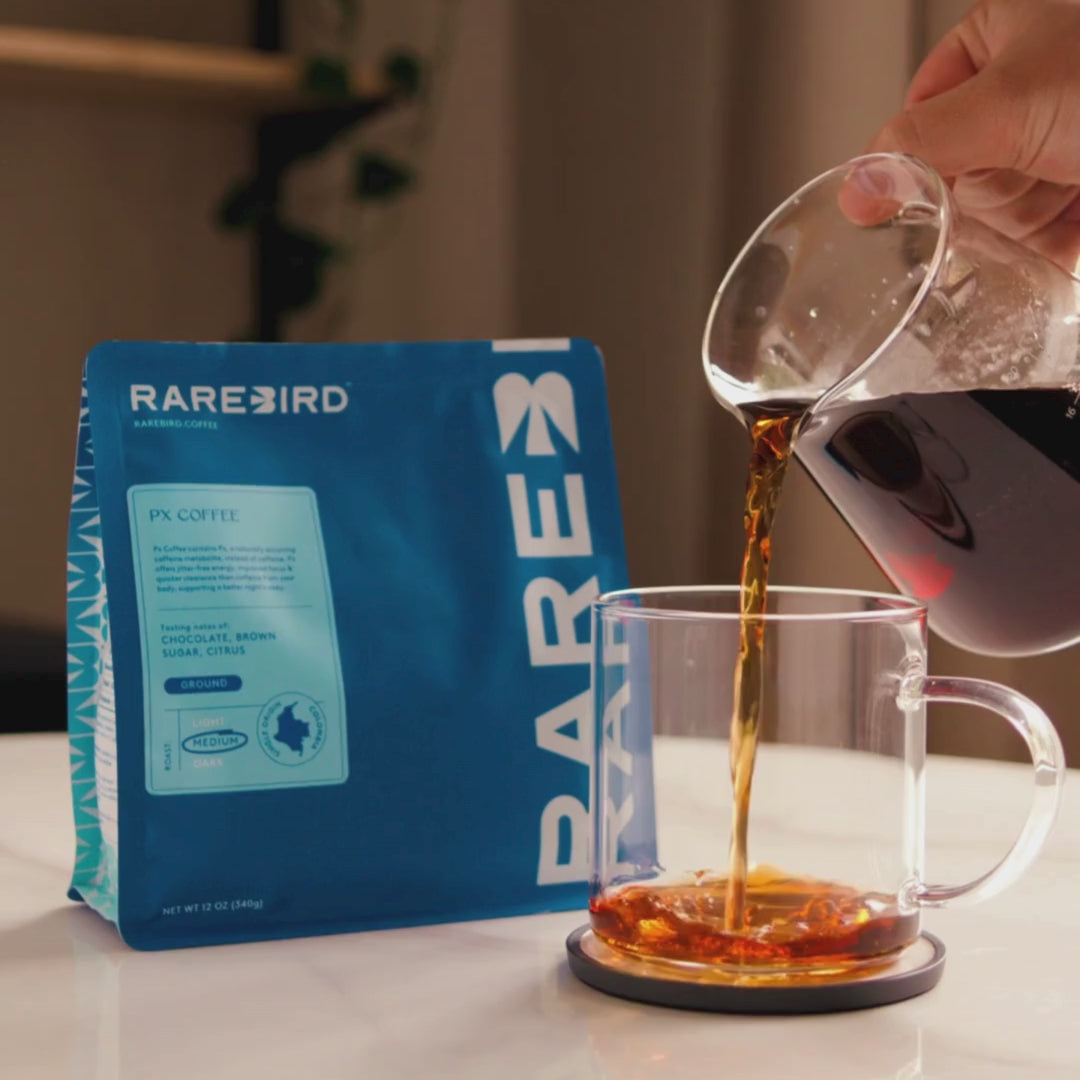
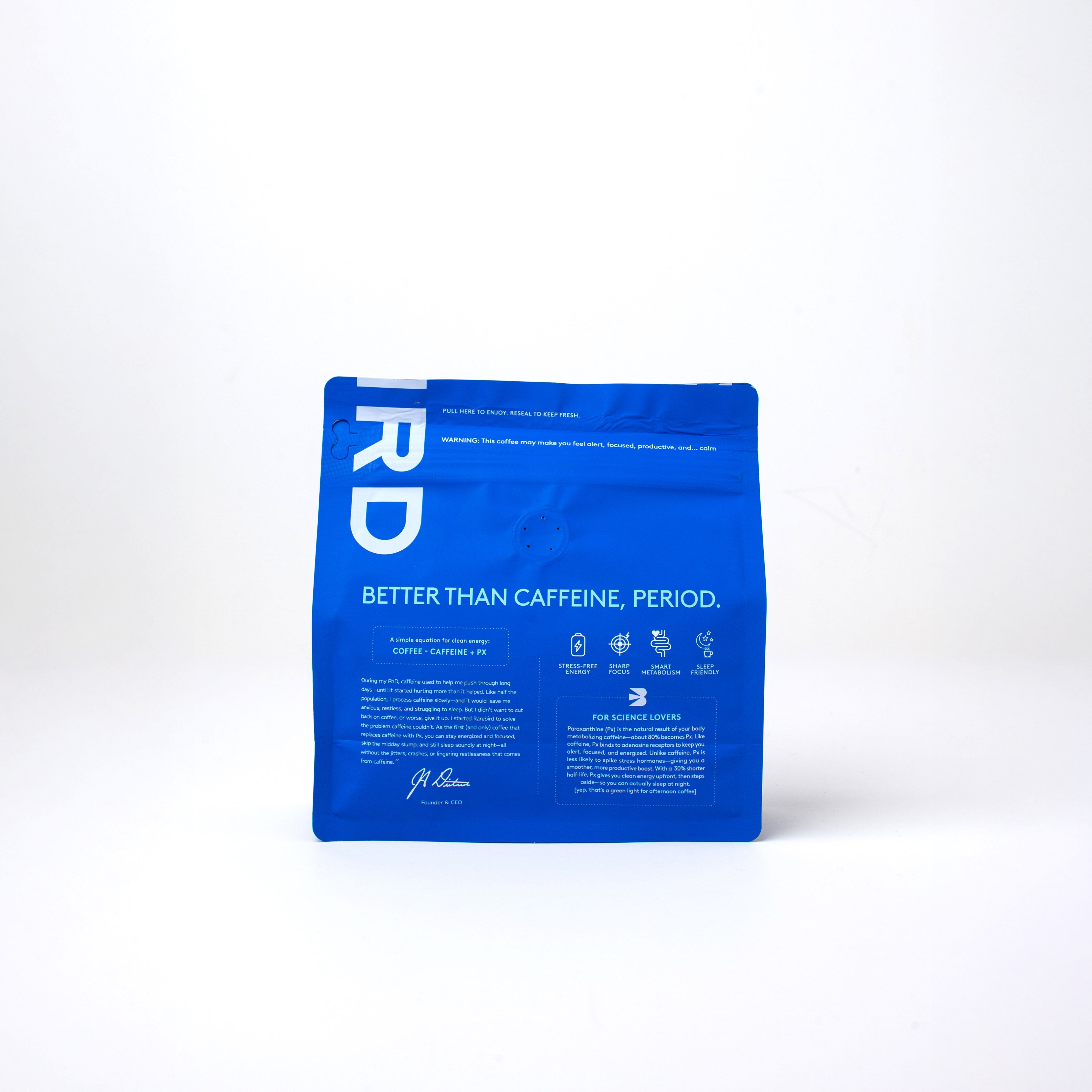
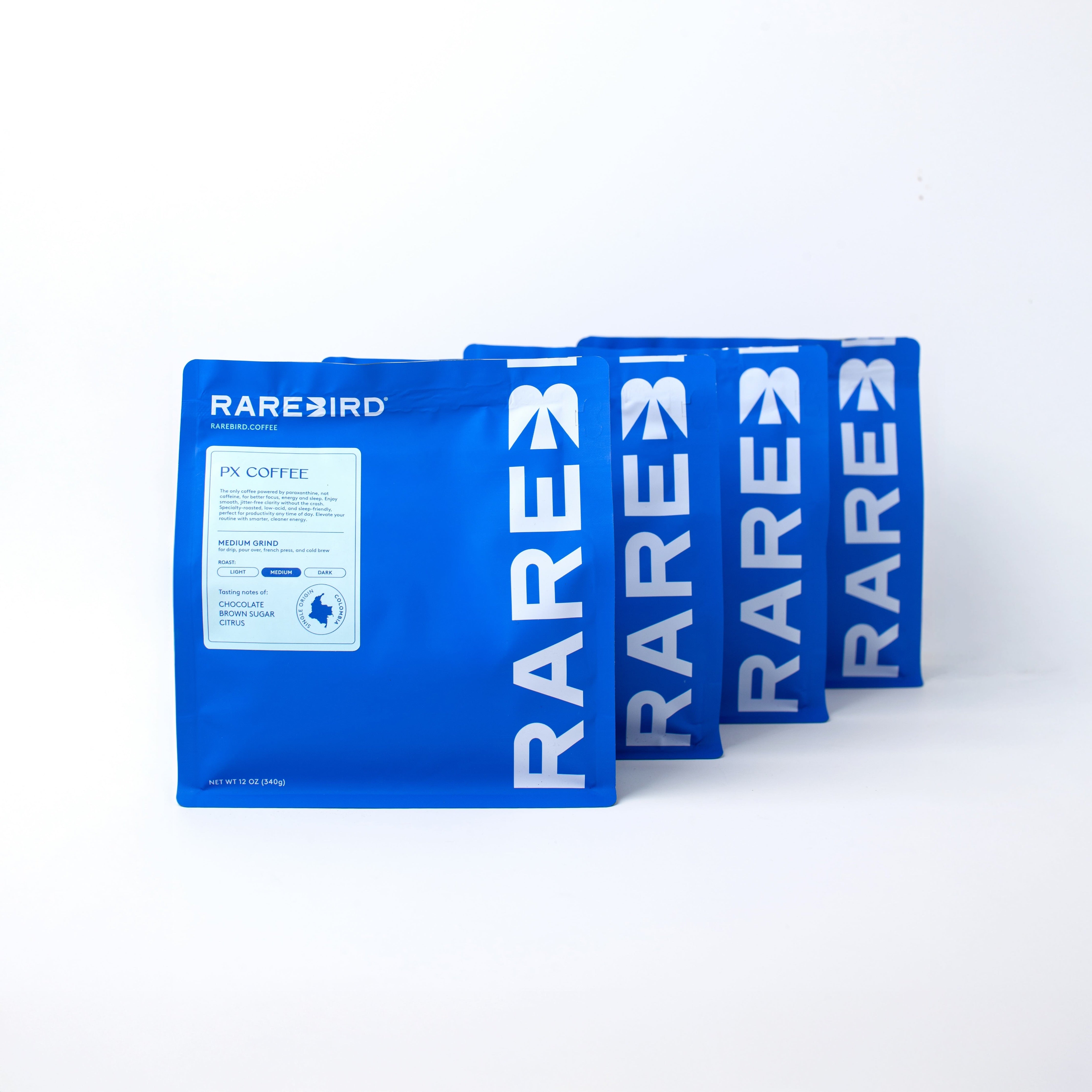
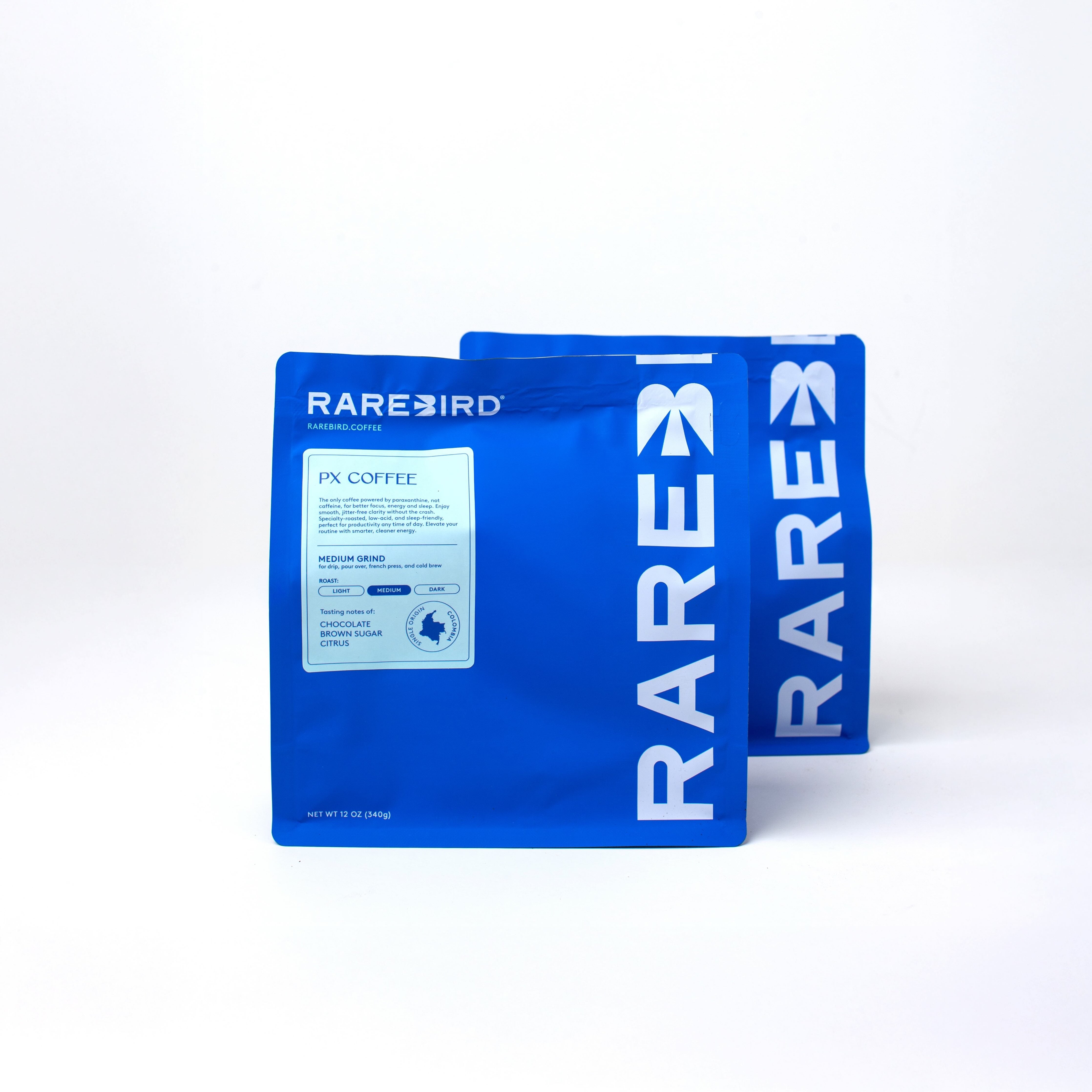
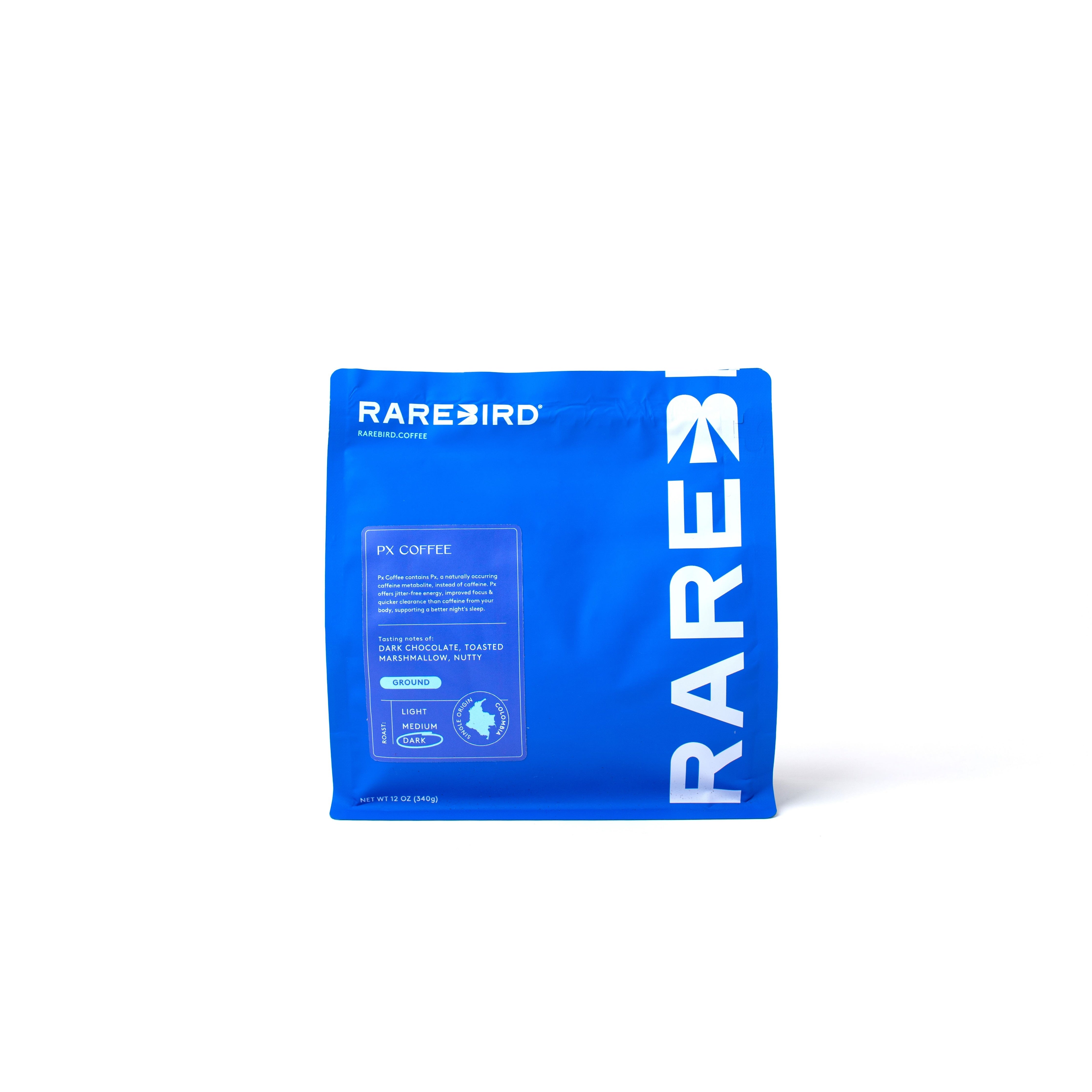
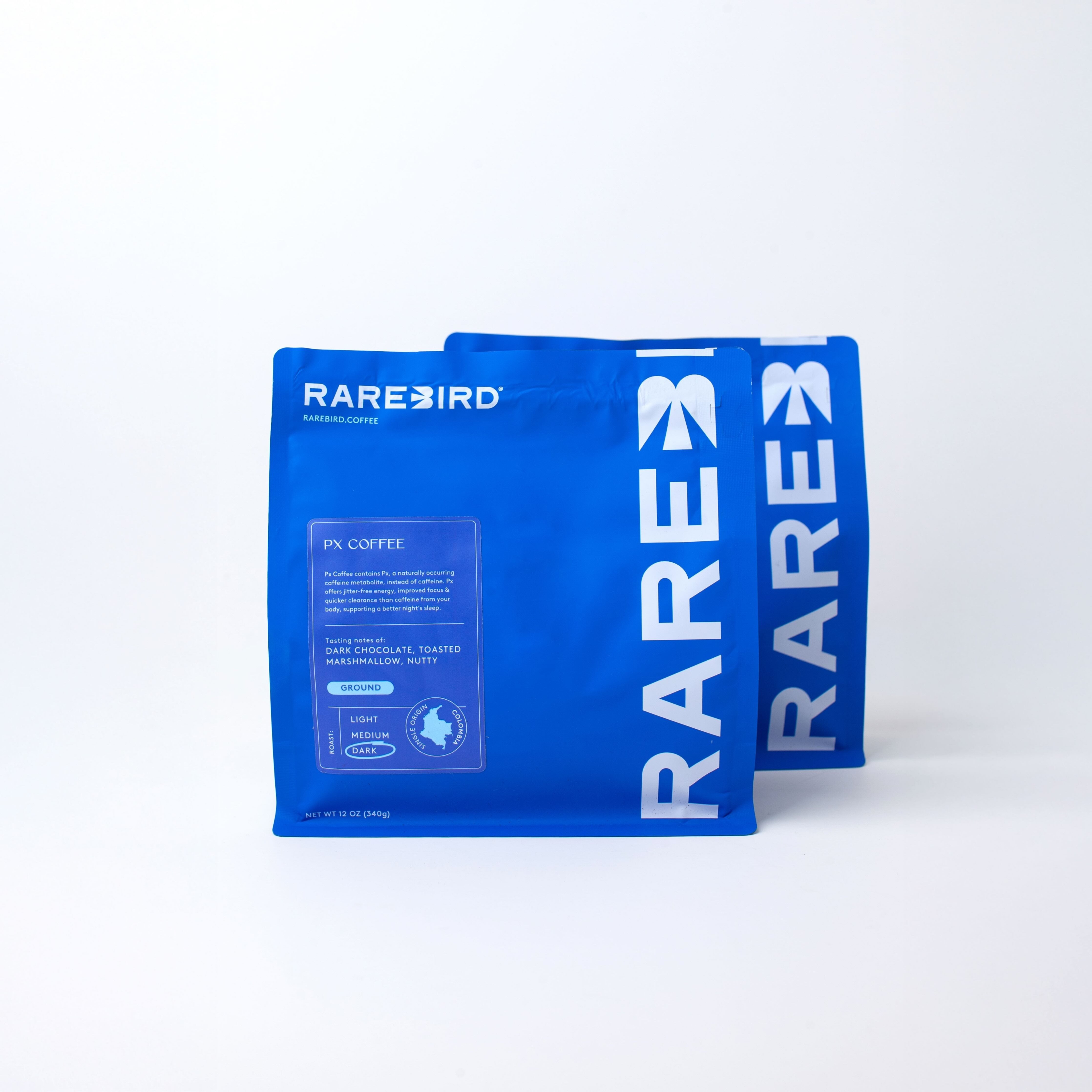
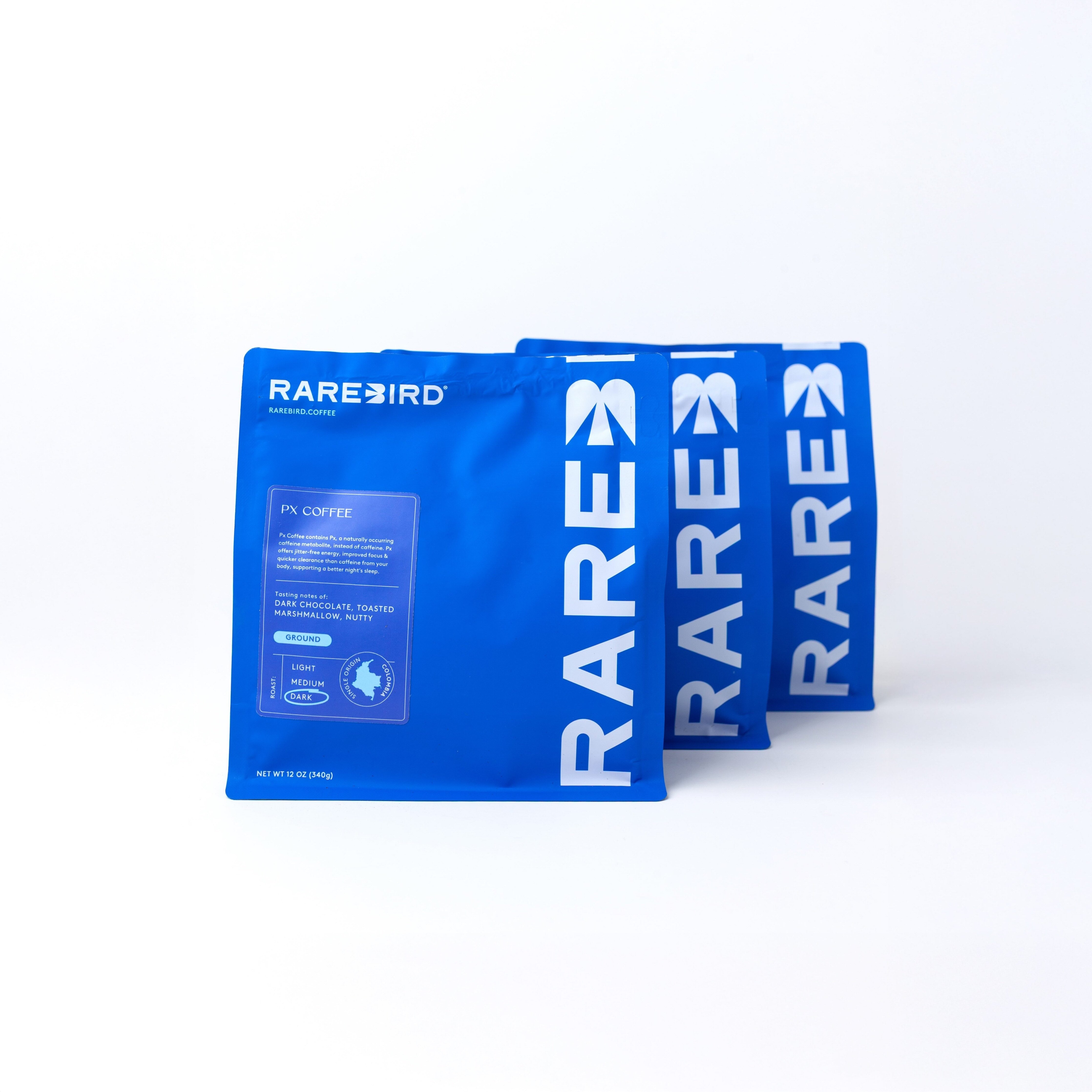
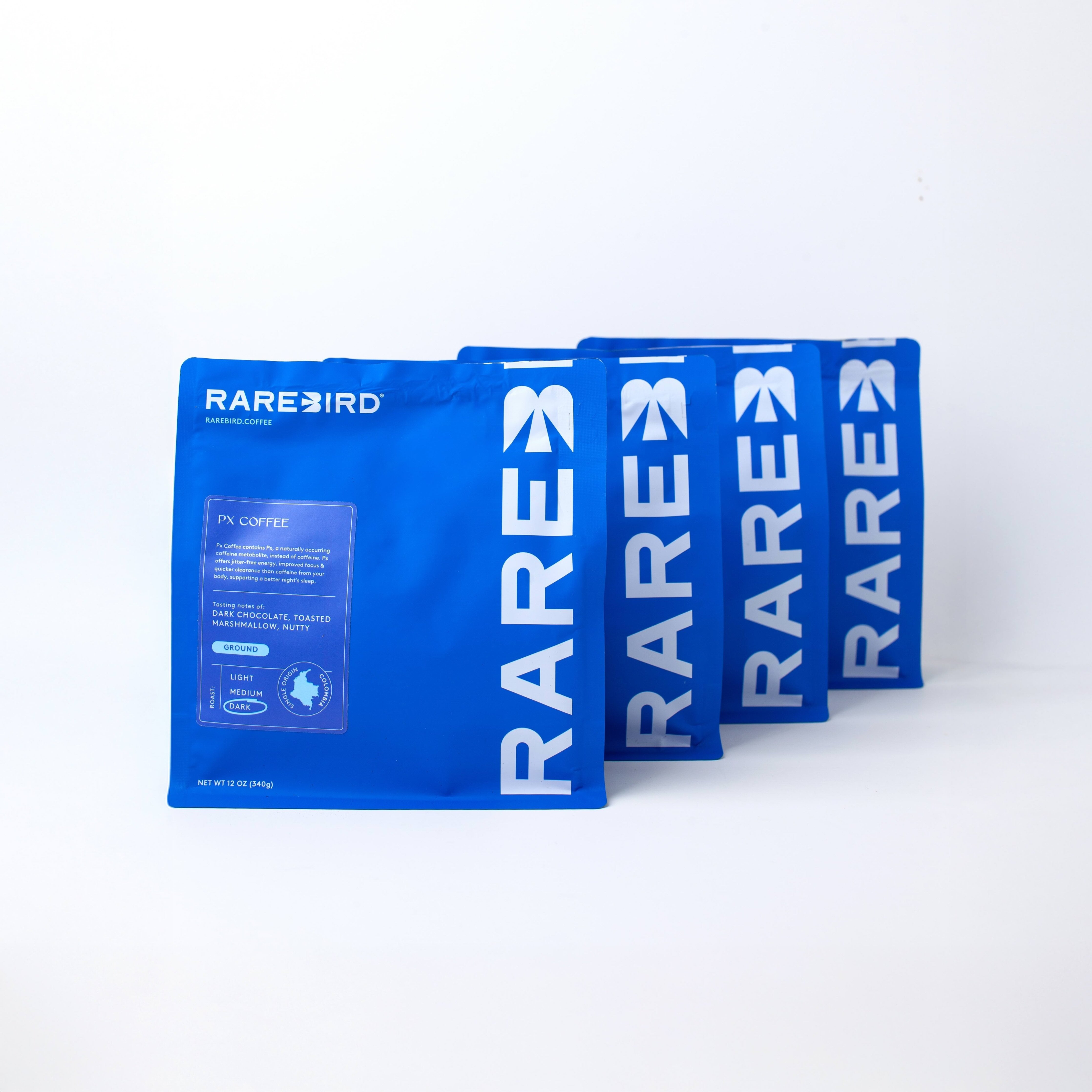
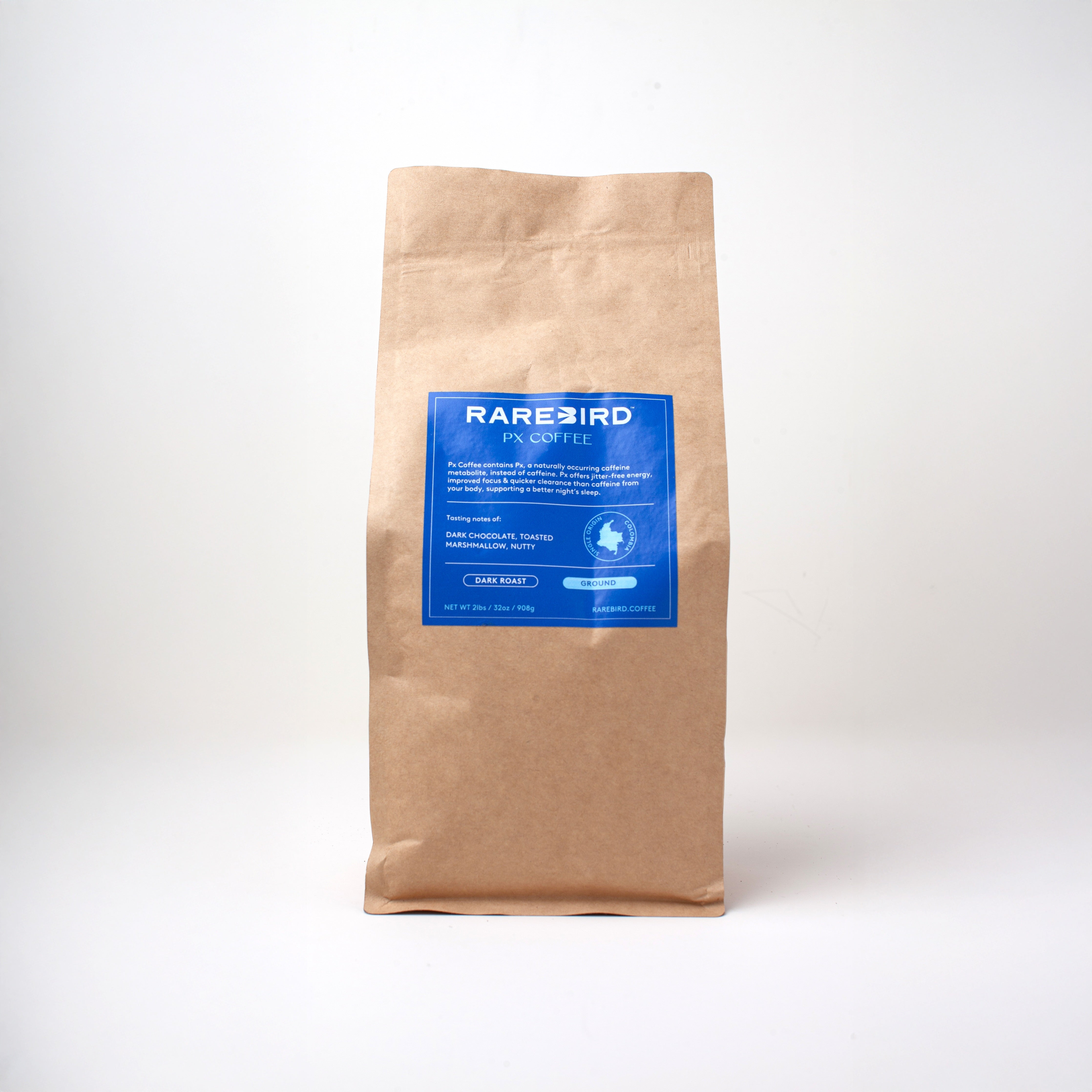
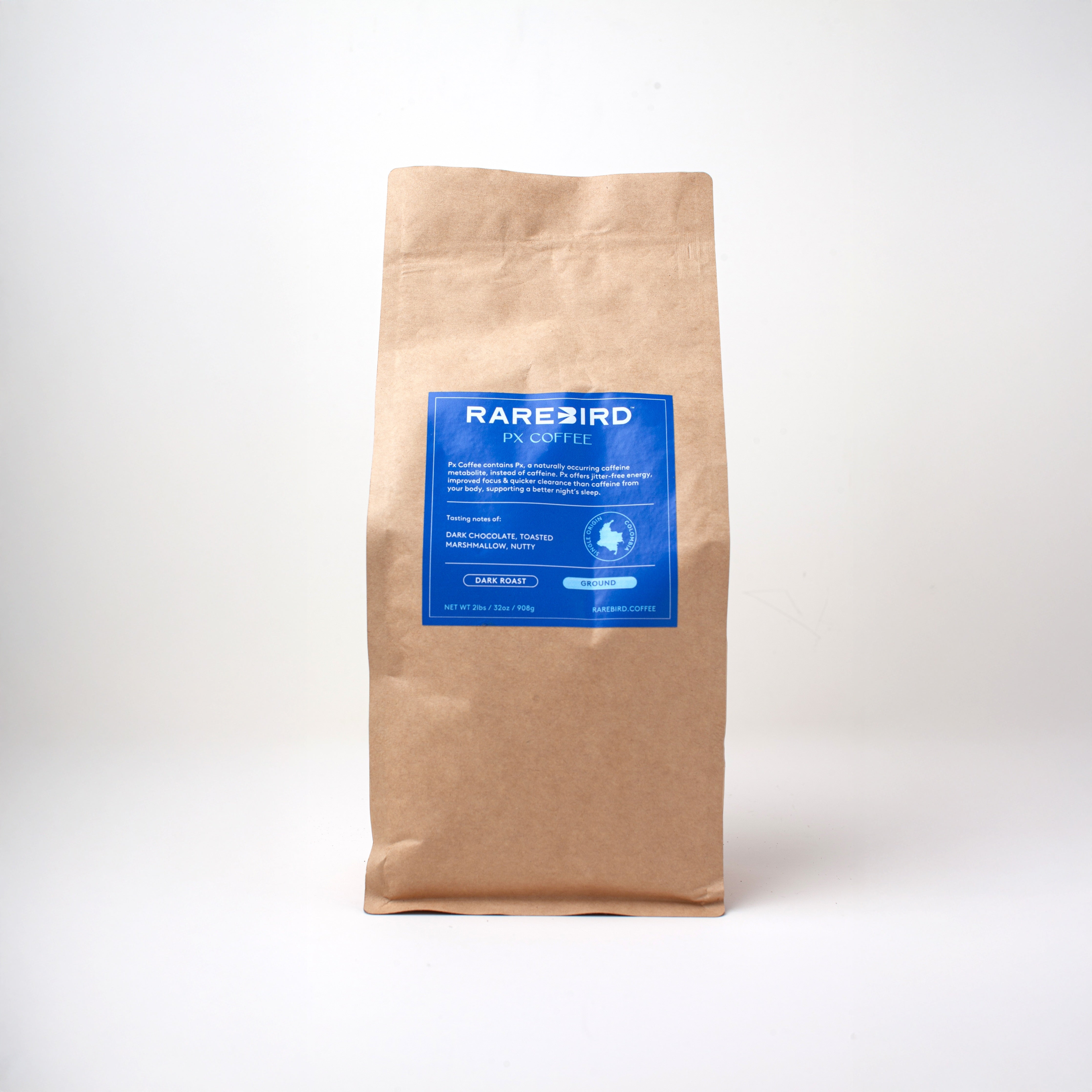
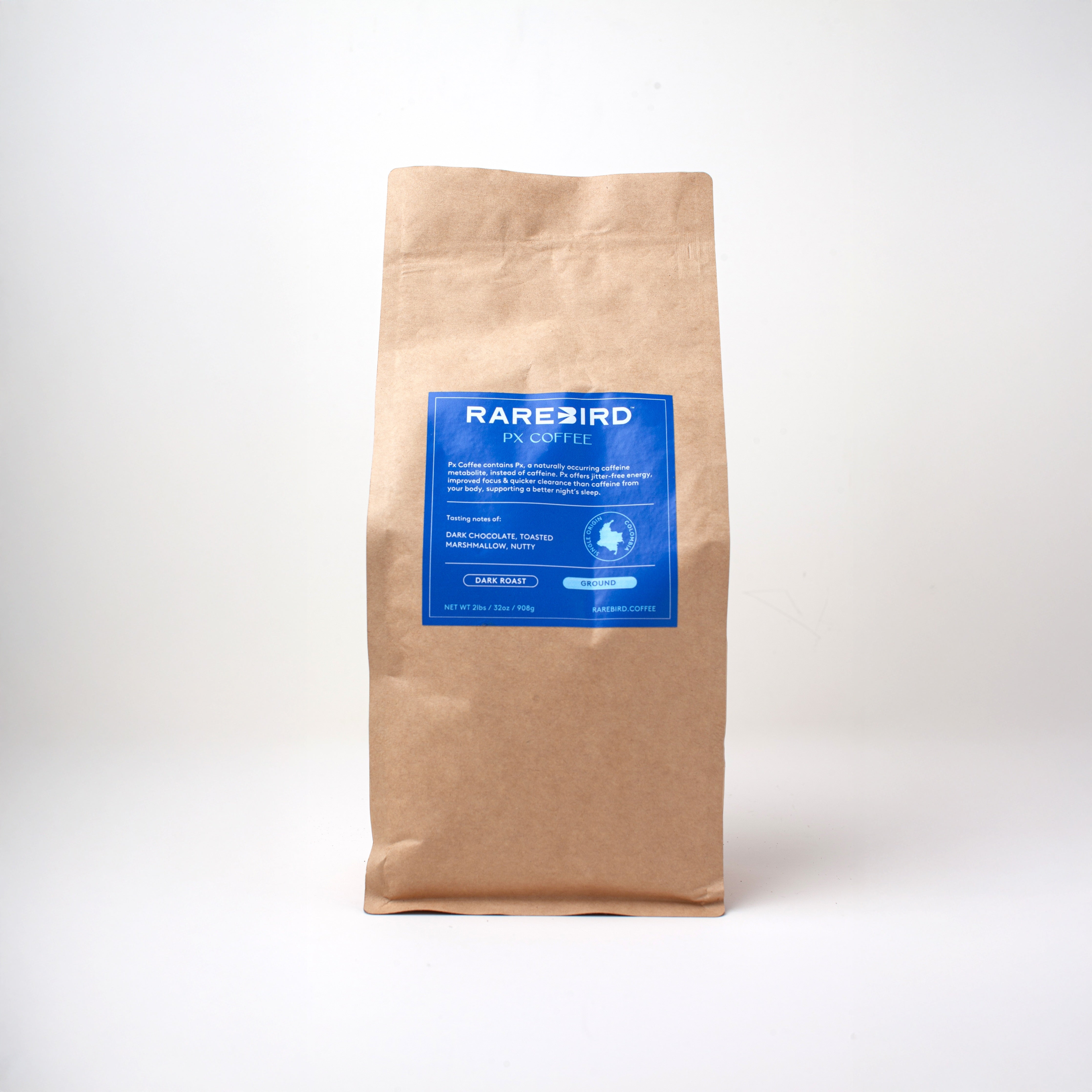
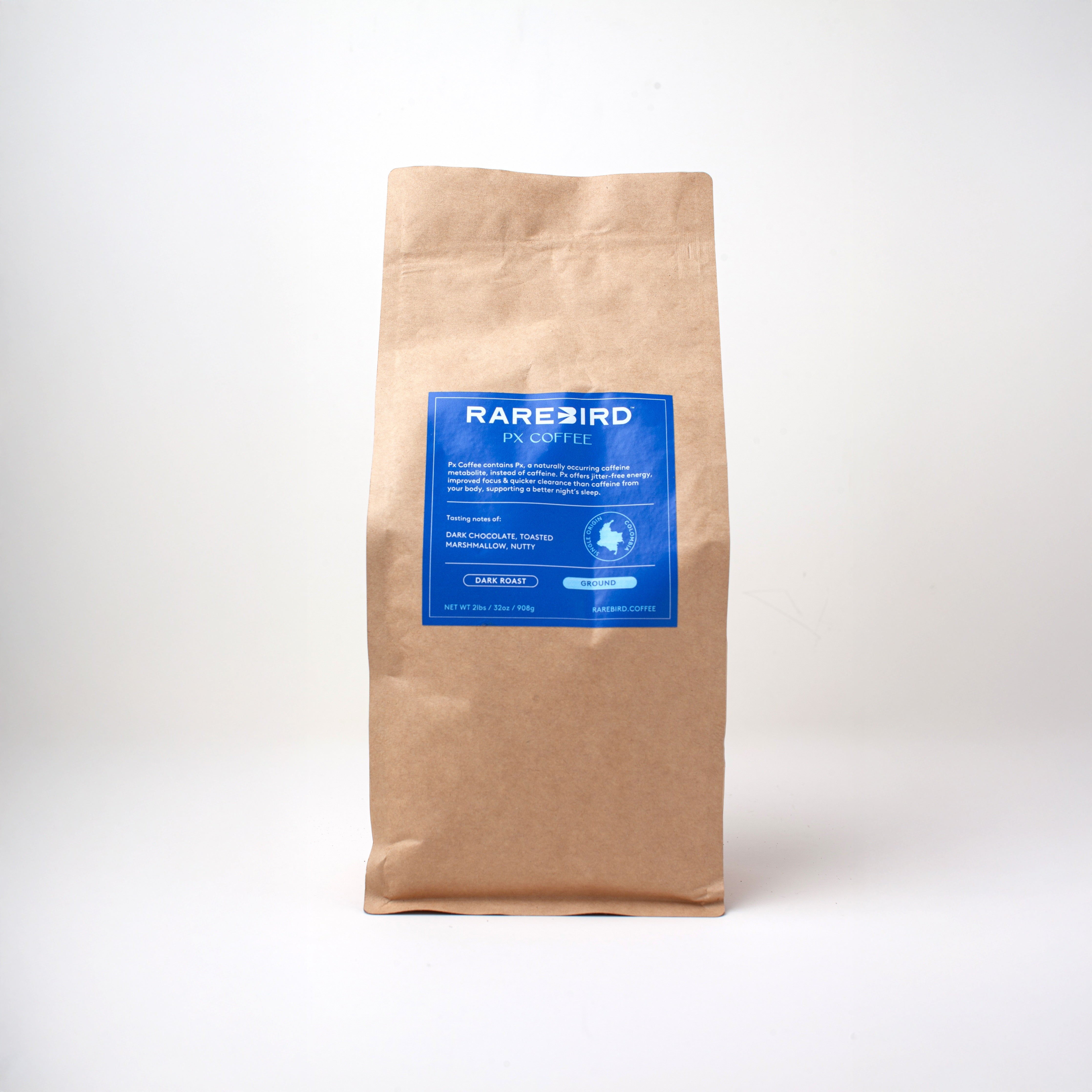





Share:
The Best Time of Day to Drink Your Daily Cup of Coffee: Science-Backed Guide
Why Caffeine Exists: The Evolution of Caffeine in Nature